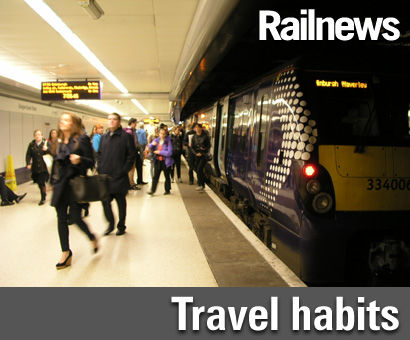NEW data from the Rail Delivery Group has revealed that people in Britain are now travelling by train as much as the Germans, and more than either the French or Dutch.
The average British person is now using a train 24 times a year, compared with 17 in France and 19 in the Netherlands.
Each passenger travels an average 940km by rail each year, compared with 612km 15 years ago. Journeys have grown by 4 per cent a year on average since the late 1990s, compared to 0.3 per cent in the 1980s and early 1990s, and at more than double the rate of the economy in the past decade and a half.
Not only are passengers travelling by train more frequently and further than before, but they are also buying more discounted tickets. Almost 50p in every pound spent on rail fares now pays for discounted tickets, up from 36p in the pound 10 years ago.
Rail company profits are slightly down, standing at £270 million in real terms when private train companies first took over services in the 1990s, and now £250 million. Over the same period the money operators generate that goes back to government has risen from £390 million to £1.96 billion, a 400% increase, but part of this increase can be accounted for by the fact that operators now pay a smaller share of track access charges, with the balance passing by direct grant from the Department for Transport to Network Rail. As track access charges are significantly lower, the result is that operators can pay higher premiums -- or need lower subsidies.
The number of trains operated has also grown significantly. There are now 1.6 million more services a year than there were 15 years ago, up 28 per cent, with 1.4 billion punctual journeys made a year, up 600 million compared to 1997-98. 1.2 billion journeys are described by passengers in surveys as ‘good’ or ‘satisfactory’, 550 million more than in 1999 when the surveys began.
The figures have been collated for the RDG by accountants KPMG.
Martin Griffiths, chairman of the Rail Delivery Group and Stagecoach Group chief executive, said: "Passengers in Britain are flocking to board Europe’s best railway, attracted by newer trains, more services and great deals.
“Rail’s transformation comes from a winning combination of private sector innovation and government policy. Operators have used commercial acumen to attract passengers, and the growth in revenue has played a crucial role in enabling government to invest record sums through Network Rail.
“As passengers are at the heart of what we do, we know we must keep improving and investing, driving up the quality of services to respond to our customers’ needs.”


